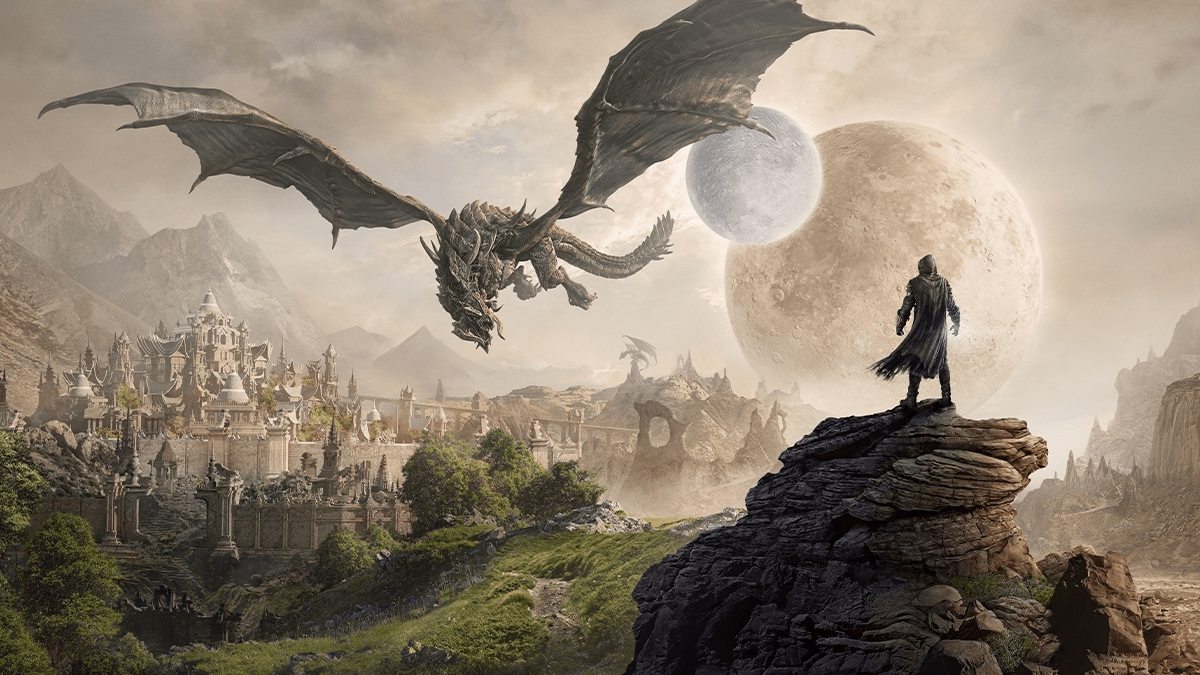The Elder Scrolls franchise has been around for nearly 30 years, and in that time, it’s offered some of the most exciting RPG adventures in gaming history, set in one of the most expansive fantasy worlds of all time. The series has repeatedly pushed the boundaries of game design, featuring immense playable worlds to explore. Until we get more news on the long-awaited Elder Scrolls VI, here are all the main games and spin-offs so far, ranked.
8. The Elder Scrolls: Arena
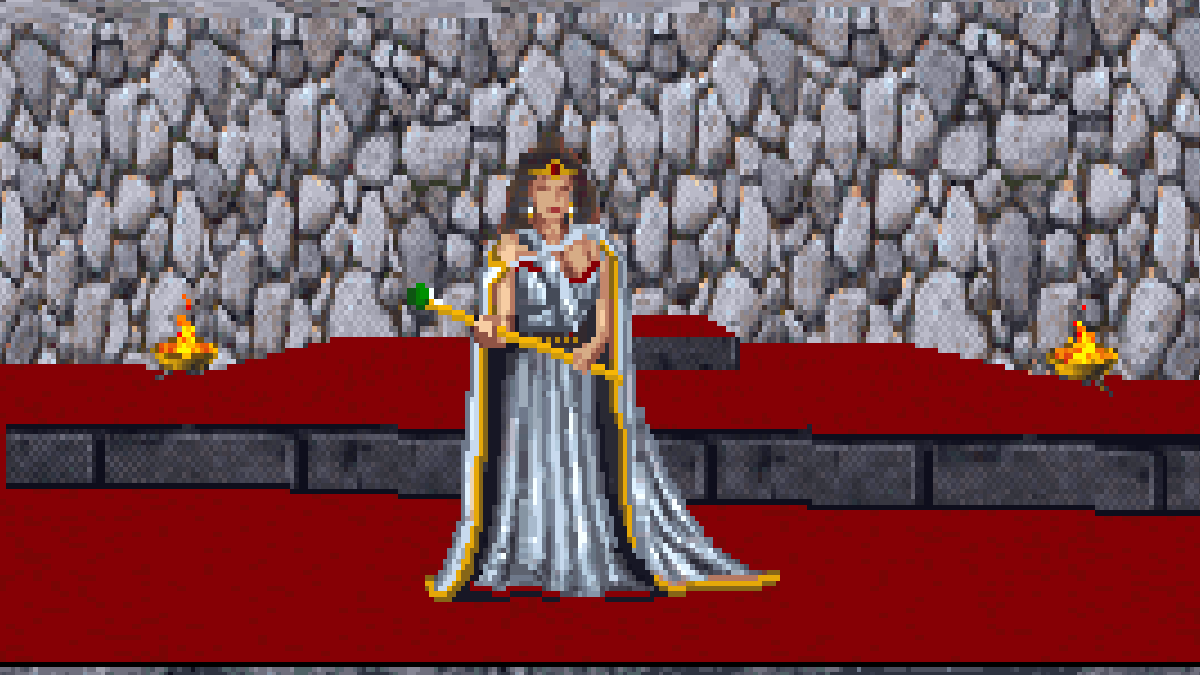
While Arena is the lowest-ranked entry on this list, it’s far from a bad game. The first game in the series, 1994’s Arena introduced players to the world of Tamriel. The game’s developers were interested in the possibilities of procedural generation technology, and used it to create a vast, endless world to explore. Arena tells the story of a hero who, with the aid of a ghostly ally, travels to every province in Tamriel to gather and reassemble the Staff of Chaos, to put an end to the reign of the tyrannical Jagar Tharn.
Arena ranks the lowest on this list simply because it’s more barebones than subsequent games in the series — while there are enormous towns and cities to explore, they’re populated with generic procedurally-generated content, and the player spends much of the game exploring the main quest dungeons. The game is also a bit broken; non-magic users stand little chance against the endgame enemies such as Liches, while anyone able to cast a basic Reflect spell will be almost totally unstoppable. Still, the game offers huge and varied dungeons, with plenty of playstyles to experiment with.
7. An Elder Scrolls Legend: Battlespire
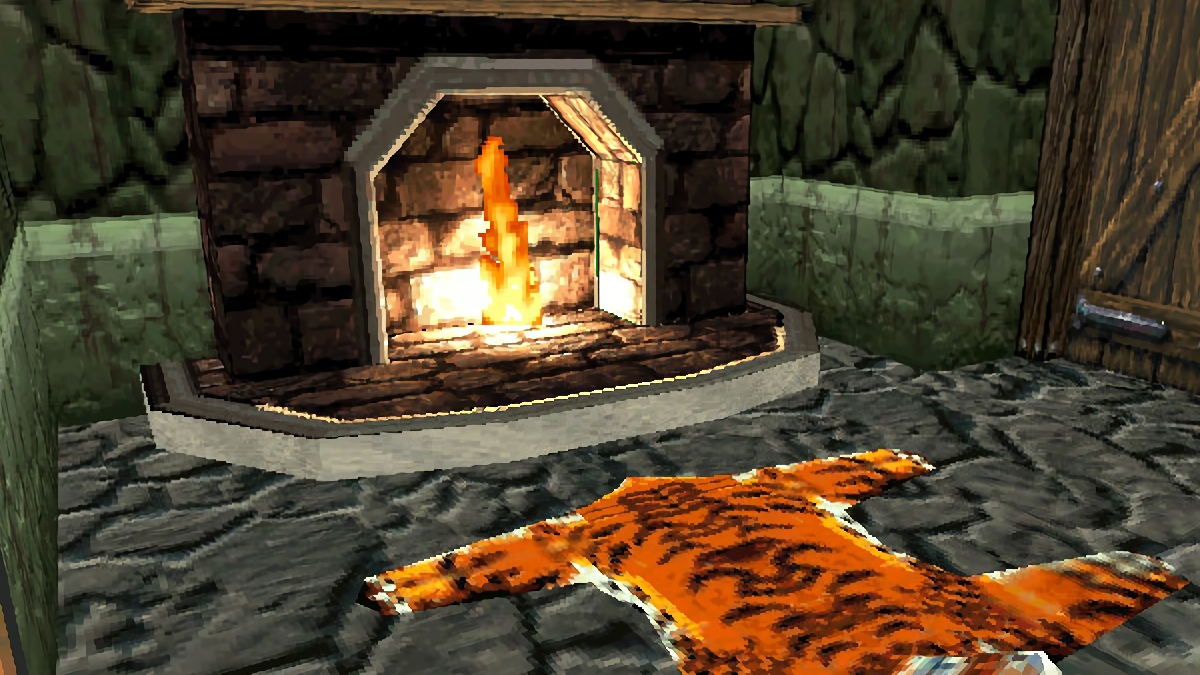
The little-known Battlespire was a short game that came out after Daggerfall. While Daggerfall gave players an immense world to explore, Battlespire decided to focus on dungeon crawling. Players take on the role of an apprentice mage who arrives for his or her final test, only to discover that the army of Daedric prince Mehrunes Dagon has invaded, killing everyone. Their partner is alive but held captive by Dagon himself. The apprentice sets out across the realms of Oblivion to effect a rescue.
The game is mostly a standard dungeon crawl — but loaded with interesting features, like the ability to politely converse with enemies instead of fighting them. The game lacks polish and can be tricky to play (or even run on modern systems), but the ideas behind it are solid, and any hardcore Elder Scrolls fan may be interested to take a look at the game.
6. The Elder Scrolls Adventures: Redguard
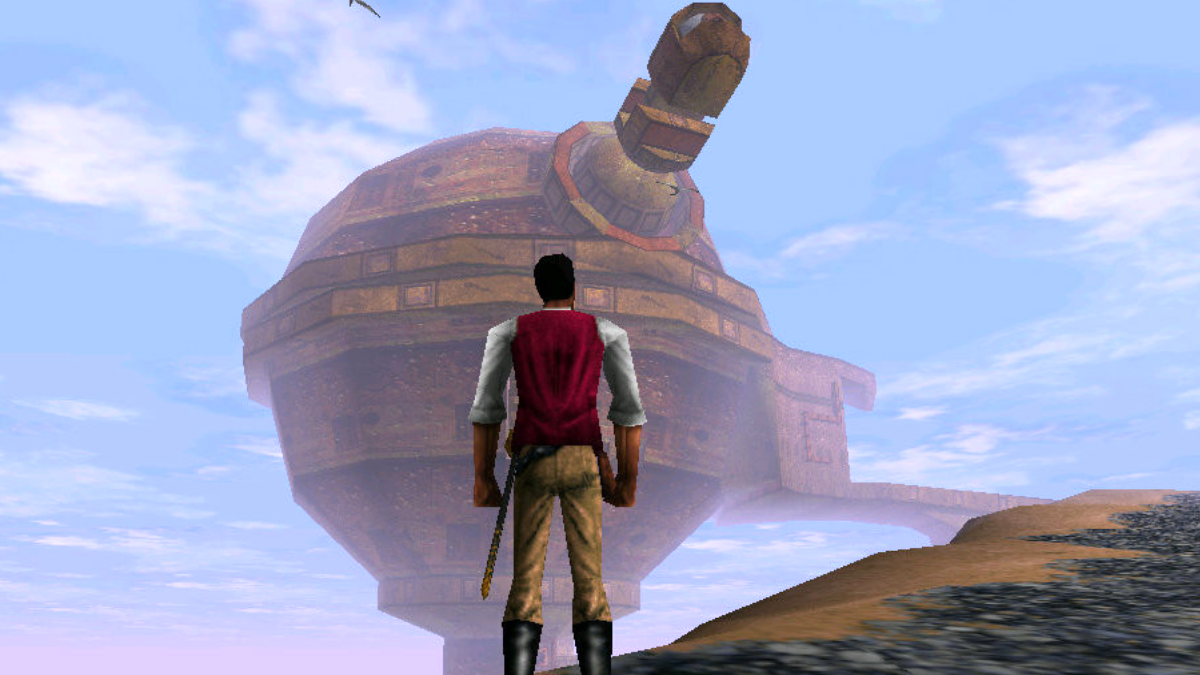
Redguard was the first — and sadly, only — entry in the planned Elder Scrolls Adventures series. Unlike other games in the Elder Scrolls series, Redguard casts the player in the role of a premade character, Cyrus, who embarks on an adventure to find his lost sister. The game is enormously imaginative, possibly the most surreal and psychedelic of all the Elder Scrolls games, even more so than Morrowind.
Taking inspiration from Tomb Raider, the game trades in the usual Elder Scrolls formula for third-person platforming, and offers the ability to talk with NPCs and battle enemies using a unique combat system. Unfortunately, the controls are very awkward and the game is quite glitchy, making the experience often more frustrating than fun. But anyone who is prepared to grapple with the game’s quirks will be rewarded with one of the most unique, and often hilarious, adventures that The Elder Scrolls has to offer. The sheer creativity of the game and the clever puzzles make the game worth a look for any fan of the series.
5. The Elder Scrolls Online
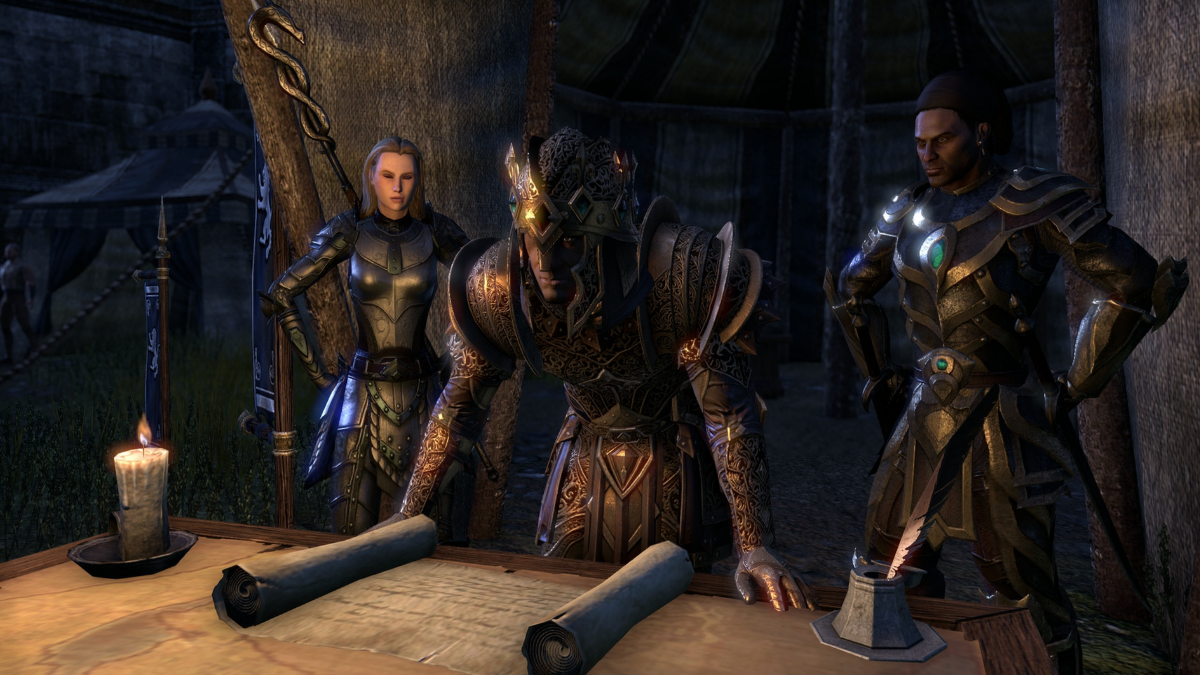
The Elder Scrolls Online is a huge MMORPG in the Elder Scrolls world. Though it had a shaky launch, the game’s quality has been boosted with constant updates and expansion packs, and it now enjoys a large and loyal fanbase.
The big appeal of the game — in addition to the multiplayer — is that, for the first time since Arena, players are given the opportunity to explore every province in Tamriel, including ones not yet touched by the other main games in the series. Online also adds a lot of new lore books, which make for fascinating reading for any dedicated fan of the setting.
4. The Elder Scrolls IV: Oblivion
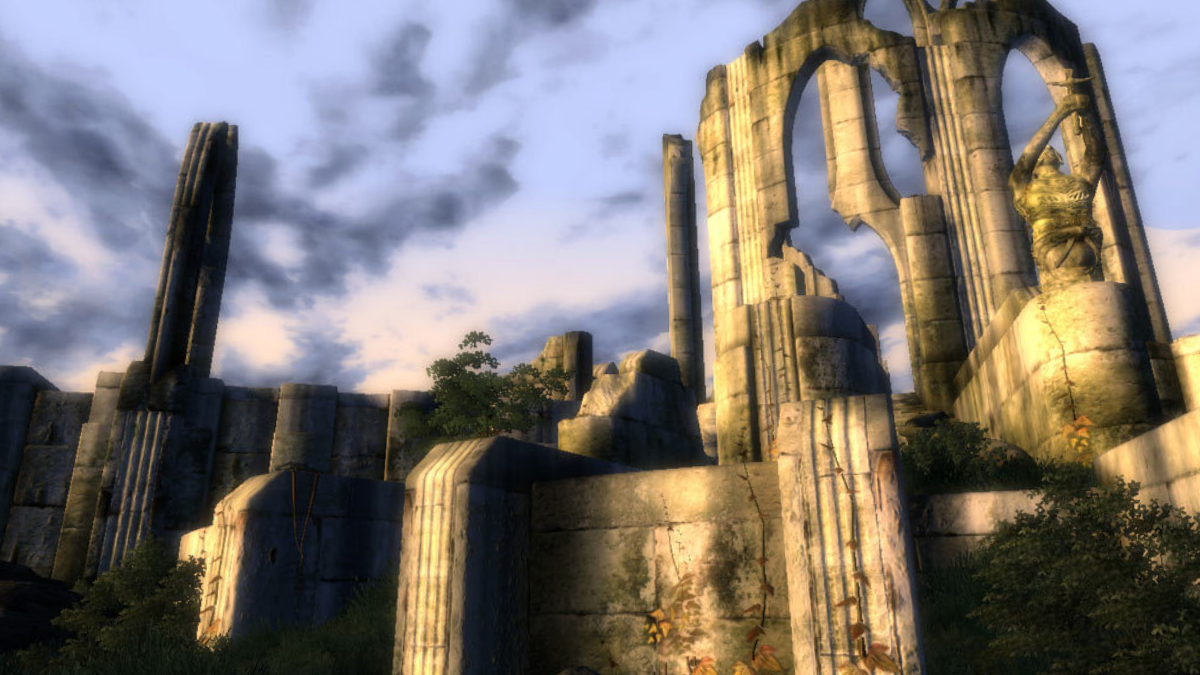
2006’s Oblivion brought The Elder Scrolls fully into the mainstream, and was crucial in cementing Bethesda Softworks as the gaming powerhouse they are today. Offering an enormous world to explore full of quests and secrets, the game was a smash hit and crossed over successfully from the PC market into the console market.
Oblivion watered down some of the mechanics from Morrowind — which itself watered down some of Daggerfall’s systems — but the tradeoff resulted in a great action-adventure game that still retained a range of deep RPG systems and gave players a wealth of control of their character’s skills and abilities, but was also more accessible than ever before and offered many gamers their first Elder Scrolls adventure.
3. The Elder Scrolls II: Daggerfall
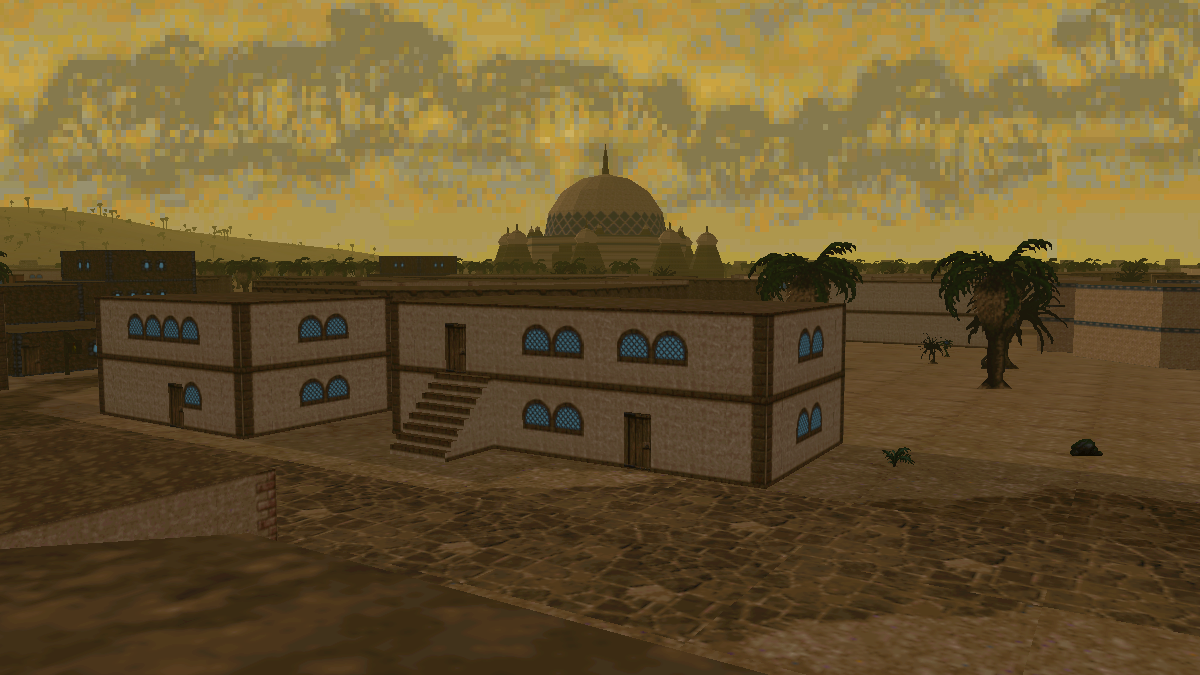
1996’s Daggerfall essentially delivered on what Arena promised. Using procedural generation, the developers created one of the largest worlds ever in a video game — and unlike Arena, this was fully populated with guilds, quests, adventures, secrets, and surprises. Even when the novelty of the sheer enormity of the world wears off, players are left with a game that offers the deepest RPG systems that the series has ever had, allowing players to build any kind of character they want, and dungeons so mind-bendingly expansive that you can get lost in them for real-life hours.
Daggerfall also began to form the bulk of the fascinating lore for which the Elder Scrolls series is known, offering many in-game books that detail the social and political intricacies of Tamriel, as well as its long history. Players assume the role of an agent of the Empire sent to the Iliac Bay to investigate the case of a restless ghost, and the resulting adventure reveals sinister plots, political intrigue, a dark conspiracy, and finally, the existence of a weapon that could destroy Tamriel if it were to fall into the wrong hands.
2. The Elder Scrolls V: Skyrim
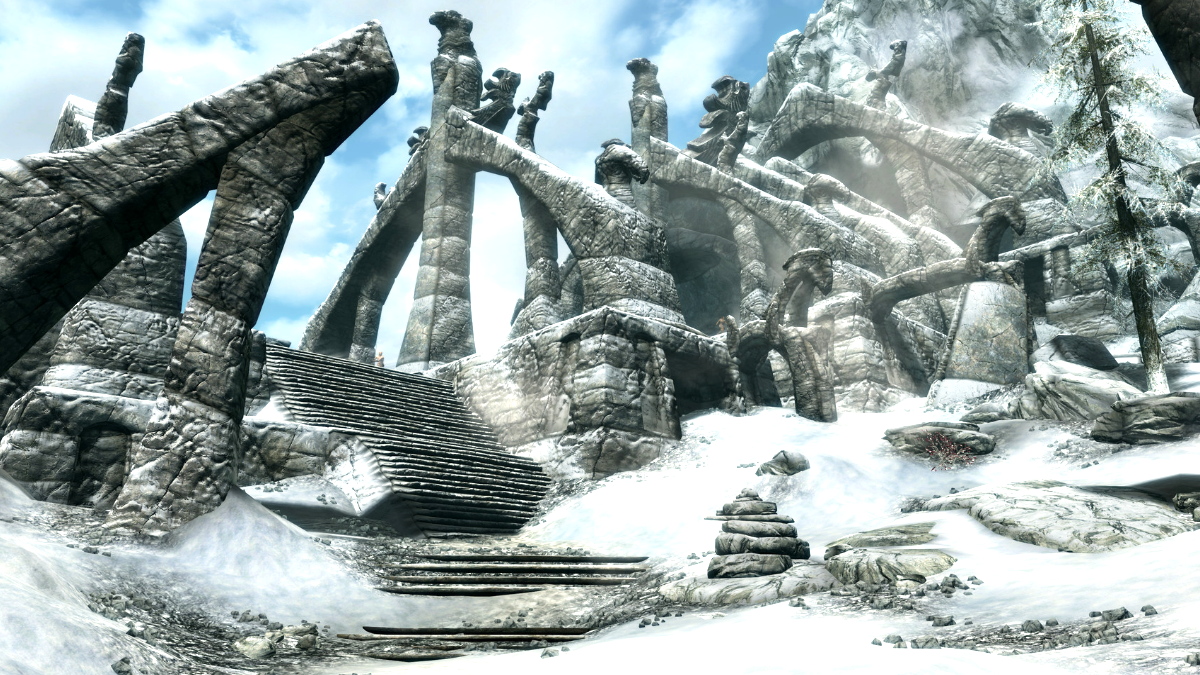
2011’s Skyrim had a lot of expectations riding on it after the widely-praised Oblivion and Bethesda’s follow-up success with 2008’s Fallout 3. Players expected more of everything — a bigger world, more quests, and more to explore. While Skyrim continued the streamlining of the Elder Scrolls series mechanics, scrapping the attributes system entirely and replacing skills with perk trees, the game was a runaway success that offered better action gameplay than the series had ever seen before. What the game lost in complexity, it gained in sheer fun, and the result was one of the best-selling games of all time, enjoyed by casual gamers and dedicated fans alike.
Players take on the role of the Dragonborn, a person with the ability to absorb the soul of a slain dragon and channel its power into “shouts,” magical abilities of immense force. Offering a similarly cinematic main quest to Oblivion, players raid ancient tombs, evade capture, and ultimately take part in a climactic battle with the terrifying Alduin… though if you’d rather ignore the main quest entirely and go off to pick flowers and sneak around bandit camps, Skyrim is more than happy to accommodate you.
1. The Elder Scrolls III: Morrowind
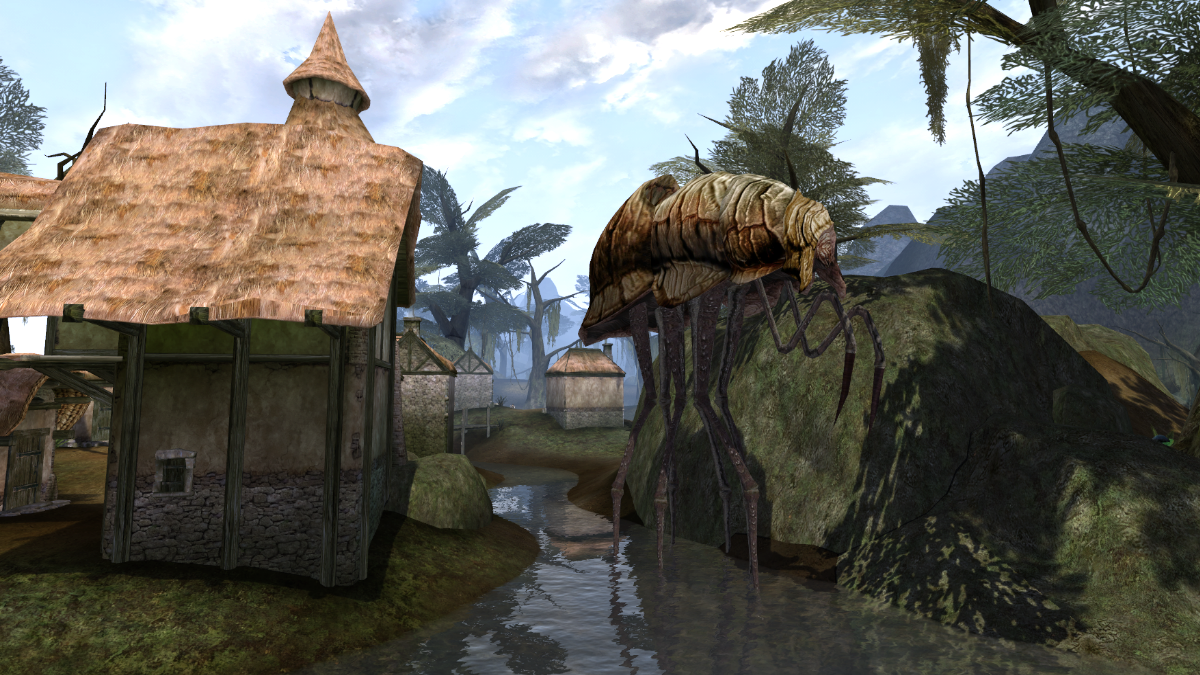
For many people, 2002’s Morrowind represents the high point of the series. While lacking Daggerfall’s scope and complexity, the game still boasted a detailed world to explore and solid RPG mechanics that allowed players a wide range of possibilities for their character.
But where Morrowind truly shines, and what it’s most fondly remembered for, is the world it depicts. No other Elder Scrolls game (barring Redguard) has used the Elder Scrolls setting as well as Morrowind. Far from the generic fantasy settings of many other RPGs, Morrowind’s world is truly bizarre and alien, with players thrown in at the deep end and left to figure out the strange customs, beliefs, and religions of the people of Vvardenfell for themselves.
Whether you’re levitating your way up the towers of Telvanni mages, meeting with the strange Ashlander tribes who live among the volcanic wasteland, or being chased by swarms of enraged Cliff Racers, there’s never a moment in Morrowind that doesn’t feel truly unique.

